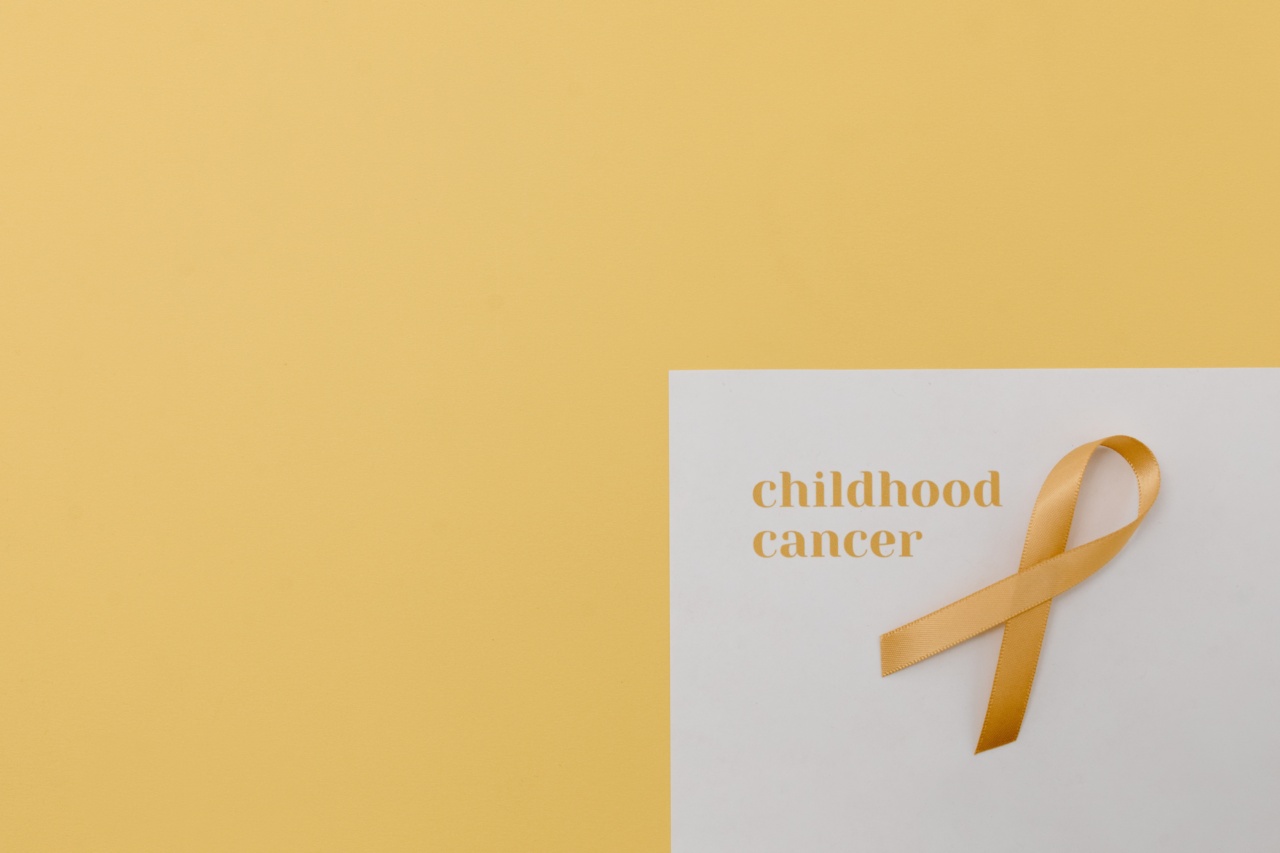Childhood cancer is a heartbreaking reality for many families around the world. It is a disease that affects children of all ages and backgrounds, causing immense emotional and physical distress.
Being proactive in the fight against childhood cancer is of utmost importance, as it not only helps raise awareness but also plays a significant role in early diagnosis, treatment, and prevention. This article will delve into the significance of being proactive in the face of childhood cancer.
The Scope of Childhood Cancer
Childhood cancer encompasses a wide range of malignancies that can affect children and adolescents. The most common types of childhood cancer include leukemia, brain and central nervous system tumors, neuroblastoma, Wilms tumor, and lymphoma.
These conditions differ from adult cancer in terms of their presentation, treatment options, and long-term effects. Childhood cancer also presents unique challenges due to the developmental stage of the young patients and the impact it has on their families.
Understanding the Importance of Early Detection
One of the key reasons to be proactive in the fight against childhood cancer is the significance of early detection. Cancer, when identified at an early stage, is often more treatable and has a higher chance of successful outcomes.
Regular screenings and vigilance in recognizing potential warning signs can contribute to the early diagnosis of childhood cancer. It is therefore crucial for parents, caregivers, and healthcare providers to remain alert to any unusual symptoms that may indicate the presence of cancer.
Common Warning Signs of Childhood Cancer
Recognizing the common warning signs of childhood cancer is essential in facilitating early detection. It is important to note that these symptoms may vary depending on the type of cancer and the individual child. Some red flags to watch for include:.
- Unexplained weight loss or lack of appetite
- Persistent pain, especially in bones or joints
- Excessive bruising or bleeding
- Persistent headaches or vomiting
- Persistent fatigue or paleness
- Lumps or swelling in various parts of the body
- Changes in the appearance of the eyes or unusual eye reflections
- Recurrent infections or illnesses
- Changes in balance, coordination, or speech
- Sudden changes in vision or hearing
Proactive Measures for Prevention
While not all childhood cancers can be prevented, there are proactive measures individuals can take to reduce the risk. These include:.
- Implementing healthy lifestyle choices, such as regular exercise and a balanced diet
- Encouraging the importance of sun safety to minimize the risk of skin cancer
- Promoting a smoke-free environment to avoid exposure to secondhand smoke
- Ensuring proper vaccinations as recommended by healthcare professionals
- Staying up-to-date with routine health check-ups and screenings
- Following safety guidelines and precautions to minimize exposure to harmful substances
The Role of Supportive Organizations
A proactive approach in the fight against childhood cancer also involves supporting organizations that are dedicated to researching, treating, and advocating for young cancer patients.
These organizations play a vital role in raising awareness about childhood cancer, funding research initiatives, and providing support services to affected families. Collaborating with such organizations helps ensure that resources and assistance reach those who need it the most.
The Impact of Proactive Fundraising
Proactive fundraising efforts contribute significantly to advancing research and treatment options for childhood cancer.
By actively participating in fundraising events or donating to reputable organizations, individuals can make a tangible difference in the lives of young cancer patients. Funding helps support cutting-edge research, clinical trials, and the development of innovative treatments specifically designed for children.
Proactive fundraising efforts also aim to improve the quality of life for childhood cancer survivors by addressing long-term side effects and promoting survivorship programs.
Building Awareness and Education
Being proactive requires spreading awareness and knowledge about childhood cancer throughout communities and educational institutions.
By educating the general public, parents, teachers, and healthcare providers about warning signs, risk factors, and available resources, we can collectively support early detection and prompt medical intervention. Awareness campaigns and educational programs empower individuals to recognize the importance of proactive measures, fostering a network of support for children and families affected by cancer.
Government Initiatives and Policies
Proactive efforts in combating childhood cancer also extend to government initiatives and policies.
Policies that focus on funding research, improving access to healthcare, and facilitating the development of pediatric oncology programs are crucial in the fight against childhood cancer. Governments can play a pivotal role in increasing awareness, coordinating national cancer control strategies, and implementing legislation that supports families and individuals affected by childhood cancer.
Supporting Families and Caregivers
Families and caregivers of children with cancer face unique challenges and emotional burdens. Being proactive means offering support, empathy, and resources to those directly impacted by childhood cancer.
Support systems can include access to counseling services, support groups, and financial assistance programs. By proactively addressing the needs of families and caregivers, we can help alleviate the emotional and financial strains they experience throughout treatment and survivorship.
The Psychological Impact and Mental Health Support
The psychological impact of childhood cancer on young patients and their families should not be underestimated. Being proactive involves recognizing and addressing the mental health toll that cancer can have on children and their support networks.
Providing comprehensive mental health support, including therapy, coping strategies, and psychological intervention, is essential in maximizing the emotional well-being and resilience of young patients and their families.
Conclusion
Childhood cancer is a devastating reality that requires proactive measures to combat its effects. Early detection, prevention, support, education, and research funding all play significant roles in the fight against childhood cancer.
By taking a proactive stance, we can increase awareness, empower families and caregivers, and improve the outcomes for children affected by this devastating disease.





























